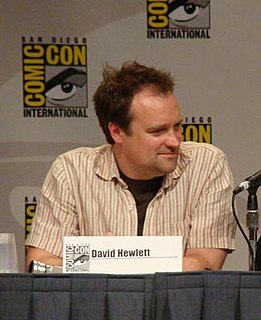A Quote by Bryce Dallas Howard
The greatest sci-fis, in my mind, are two things: They're what-ifs - what if this happened, and you get to see it - but they're also these philosophical cautionary tales. They deal with the underlying themes beneath the what-if.
Related Quotes
You can think of my films as cautionary tales, but you might even think of them as despairing tales, because at least in a cautionary tale, you have this idea that by listening to the story you can assure a better outcome. Whereas I'm not at all convinced that's the case. In fact, if anything, I'm convinced that it's the opposite.
You see so many beautiful things happening in this world, and you see so many things that make you want to cry and crawl under a rock. But there's an underlying feeling of magic and mystery in everything that I live for. I feel like all of my art is trying to get people to see that underlying, subtle energy that lives within everything that we see and what we don't see in this world.
You sing about the things you're influenced by. So we've been big into sci-fi since we were kids, things like Star Trek etc. Then came movies like Terminator and Dune. Burton is also a really big reader and loves sci-fi novels which helps him write. It's also really cool he does that because it's through the perspective of how we see things going or possibly going.
People ask me, 'What happened in your life that might have pushed you as an artist to get to where you are today?' I always felt a little on the outside. And as such, you're always observing things. So, I'd be kind of re-creating these things in my mind, and I think drawing it was a way to deal with that.
The voice in your head also creates a huge amount of problems that aren't really problems. They're just things that haven't happened yet, things that could happen tomorrow or next week. Listening to unreal problems has another name: worrying. That's what the voice in your head does. It what-ifs. It frets. It agonizes, and you can no longer sense the joy of life.
The greatest achievement is selflessness.
The greatest worth is self-mastery.
The greatest quality is seeking to serve others.
The greatest precept is continual awareness.
The greatest medicine is the emptiness of everything.
The greatest action is not conforming with the worlds ways.
The greatest magic is transmuting the passions.
The greatest generosity is non-attachment.
The greatest goodness is a peaceful mind.
The greatest patience is humility.
The greatest effort is not concerned with results.
The greatest meditation is a mind that lets go.
The greatest wisdom is seeing through appearances.




































